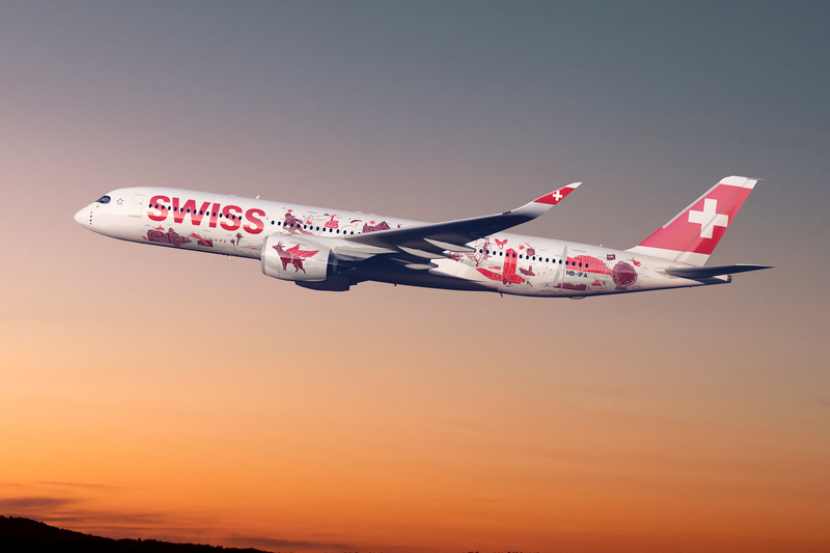Published on
September 23, 2025
Austria, Germany, Switzerland, and several other countries are facing significant travel disruptions as Swiss Airlines grounds 11 flights, due to a major cyberattack. The attack has left passengers stranded at airports in cities like Vienna, Hamburg, Zurich, and beyond. Flights have been cancelled, and many travelers are left uncertain about their next steps. The cyberattack targeted the airline’s critical systems, causing widespread delays and halting operations across multiple airports. Swiss Airlines is working hard to resolve the issue, but the disruption has already had a huge impact. Affected passengers are advised to check for updates and rebooking options. This cyberattack highlights vulnerabilities in the aviation sector and emphasizes the need for stronger cybersecurity measures to protect travelers. As Swiss Airlines works through the crisis, passengers are left dealing with the fallout from this unexpected incident.
Affected Cities and Airports
The affected cities and their corresponding airports. These include Vienna, served by Vienna International Airport (VIE) in Austria; Hamburg, with Hamburg Airport (HAM) in Germany; Zurich, which is served by Zurich Airport (Kloten) (ZRH) in Switzerland; Nice, connected to Nice Cote d’Azur Airport (NCE) in France; Frankfurt, with Frankfurt International Airport (FRA) in Germany; Catania, where Catania-Fontanarossa Airport (CTA) is located in Italy; Geneva, served by Geneva Cointrin International Airport (GVA) in Switzerland; and Hong Kong, with Hong Kong International Airport (HKG). These cities and airports represent key locations impacted by the recent flight cancellations.
Flight CancellationsIdentTypeOriginDestinationScheduled Departure TimeSWR1574A20NZurich (Kloten) (ZRH / LSZH)Vienna Int’l (Schwechat) (VIE / LOWW)Mon 07:30 AM CESTSWR1052A20NZurich (Kloten) (ZRH / LSZH)Hamburg (HAM / EDDH)Mon 08:40 AM CESTSWR1575A20NVienna Int’l (Schwechat) (VIE / LOWW)Zurich (Kloten) (ZRH / LSZH)Mon 09:45 AM CESTSWR1053A20NHamburg (HAM / EDDH)Zurich (Kloten) (ZRH / LSZH)Mon 11:00 AM CESTSWR568A320Zurich (Kloten) (ZRH / LSZH)Nice Cote d’Azur (NCE / LFMN)Mon 12:35 PM CESTSWR569A320Nice Cote d’Azur (NCE / LFMN)Zurich (Kloten) (ZRH / LSZH)Mon 02:50 PM CESTSWR1076A320Zurich (Kloten) (ZRH / LSZH)Frankfurt Int’l (FRA / EDDF)Mon 07:05 PM CESTSWR2387BCS3Catania-Fontanarossa Airport (CTA / LICC)Geneva Cointrin Int’l (GVA / LSGG)Mon 07:50 PM CESTSWR1077A320Frankfurt Int’l (FRA / EDDF)Zurich (Kloten) (ZRH / LSZH)Mon 08:55 PM CESTSWR138B77WZurich (Kloten) (ZRH / LSZH)Hong Kong Int’l (HKG / VHHH)Mon 10:50 PM CESTSWR139B77WHong Kong Int’l (HKG / VHHH)Zurich (Kloten) (ZRH / LSZH)Tue 11:25 PM HKTAffected Routes
Swiss Airlines flights were scheduled to operate between Zurich (ZRH) and Vienna (VIE), Zurich (ZRH) and Hamburg (HAM), Zurich (ZRH) and Nice (NCE), Zurich (ZRH) and Frankfurt (FRA), Zurich (ZRH) and Catania (CTA), and Zurich (ZRH) and Hong Kong (HKG). Other routes affected include Vienna (VIE) to Zurich (ZRH), Hamburg (HAM) to Zurich (ZRH), Nice (NCE) to Zurich (ZRH), and Frankfurt (FRA) to Zurich (ZRH). These routes were part of the disrupted travel plans as Swiss Airlines grounded flights, leaving passengers stranded at various European airports.
Reason Behind Cancellations
The cyberattack, which targeted several airports in Europe, hit the MUSE software platform. This software, developed by Collins Aerospace, is crucial for the processing of passenger check-in, boarding, and other key flight operations. The disruption affected major airports like Zurich, London Heathrow, Berlin, and Brussels, all of which use the MUSE platform.
Swiss Airlines was particularly affected by this attack as the airline relies on MUSE to streamline check-in and boarding procedures for its passengers. Following the cyberattack, the airline had no choice but to cancel multiple flights due to the inability to process passengers efficiently. The affected flights included routes to major destinations like Vienna, Hamburg, Nice, and Frankfurt. Zurich, which is Swiss Airlines’ primary hub, reported minimal operational issues, but the cascading effects of the attack disrupted other routes.
What to Do if Your Flight Gets Cancelled: A Quick Guide
Flight cancellations can be frustrating, but knowing the right steps to take can help minimize stress. Here’s what you can do if you find yourself in this situation:
Stay Updated
Monitor your email, phone, and the airline’s app for rebooking confirmation or further announcements.
Stay Calm and Check for Updates
As soon as you learn your flight is canceled, stay calm and check for updates. Many airlines will notify you via text, email, or their app. Visit the airline’s website for real-time updates on the situation.
Contact the Airline
Reach out to the airline’s customer service either in person at the airport or over the phone. If you’re at the airport, head to the service desk. If you’re not, try calling or using the airline’s online chat system to avoid waiting in long queues.
Know Your Rights
Familiarize yourself with the airline’s policies regarding cancellations. Many airlines offer rebooking options or compensation, especially if the cancellation is within their control. In the EU, for example, passengers are entitled to compensation under certain conditions.
Consider Alternative Flights
Ask the airline about the next available flight. If you can’t find a suitable option, consider booking a new flight through another airline, or check for other forms of transport like trains or buses.
The cyberattack that forced Swiss Airlines to cancel 11 flights today serves as a wake-up call for the aviation industry. While the immediate impacts of the disruption are being addressed, this incident highlights the urgent need for stronger cybersecurity measures across the sector. As air travel continues to evolve, the aviation industry must work collectively to ensure the safety and security of its passengers. Only through proactive investment in cybersecurity and cooperation between airlines, governments, and software providers can we hope to safeguard the future of air travel.
Source: FlightAware
Image Source: Swiss Airlines
